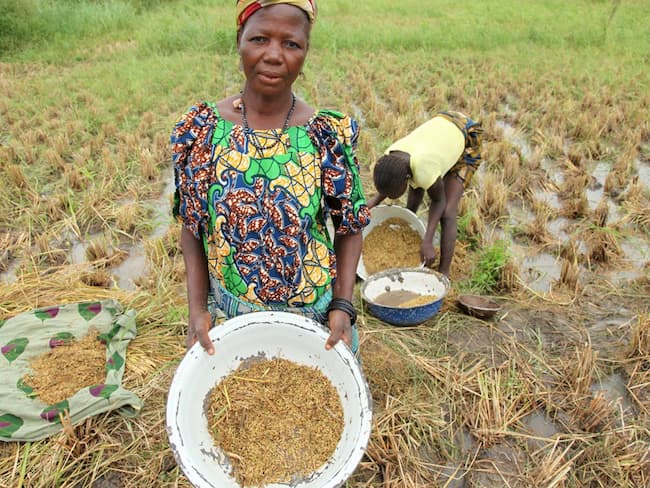Rice Farmers’ Association of Nigeria (RIFAN) in Kaduna State has distributed seedlings, fertilisers and pesticides to 1,390 farmers for this year’s planting season.
While presenting the farm inputs, RIFAN State Chairman, Alhaji Mohammed Numbu, said inputs were loans, which beneficiaries would pay either in cash or commodity exchange during harvest season.
He added that farmers in the three Senatorial zones of the state benefitted from the scheme.
Speaking on insecurity, he said the cluster areas marked for rice farming had little or no security issues.
Meanwhile, a total of 2,366,753 individuals from 607,974 poor and vulnerable households in the state have been identified and listed in the National Social Register (NSR).
READ ALSO: Dangote Sugar To Invest $1bn In Factory Expansion, Sugarcane Cultivation
Coordinator, Kaduna State Operation Coordinating Unit (KADSOCU), National Social Safety Nets Coordinating Office (NASSCO), Mrs. Dawong Nina Yakal, gave the statistics at the second quarterly roundtable media engagement on status of the State Social Register (SSR) in Kaduna on Friday.
“The National Bureau of Statistics (NBS) has indicated that about 43.5 per cent of the state’s population is living below $1.5 per day. This means about 4,350,000 of about 10 million people (2006 census projection) majority of whom reside in rural parts of the state, are poor and vulnerable to economic realities around them,” she said.
“We are distributing fertilisers, 30kg of improved rice seedling and inputs and pesticides. This is to ensure a boost in rice production in Kaduna State under RIFAN anchor-borrowers programme.
“At harvest time, RIFAN will receive its loan payment 100 per cent. We pray that farmers succeed. We will collect our own. And if the farmers choose to sell the rice to us, we will buy them instantly. If you are not selling, we allow you to take it home.
“We know what is happening in Kaduna State in terms of security challenges, so the cluster we marked are free from insecurity. We pray that insecurity should be curtailed in those areas, as farmers go to farms”.












